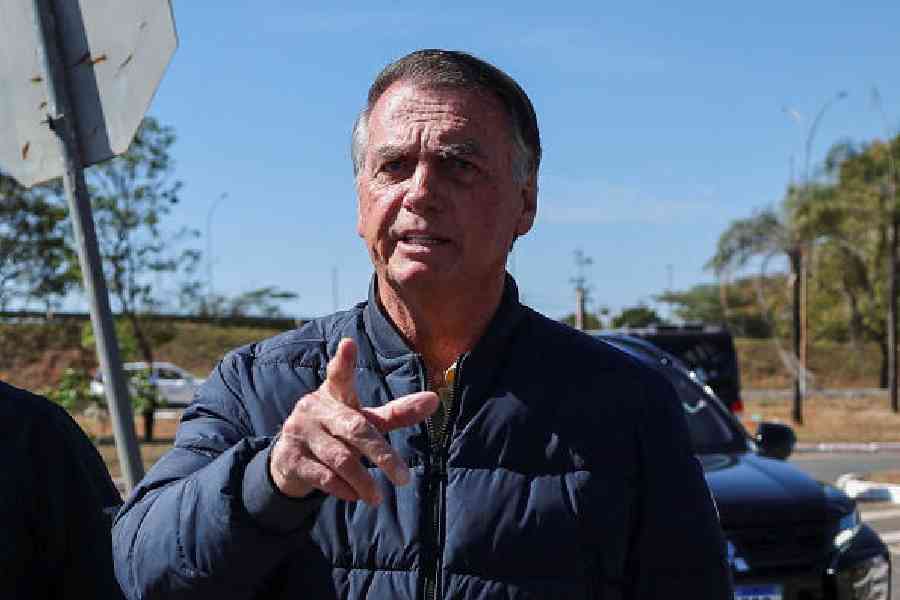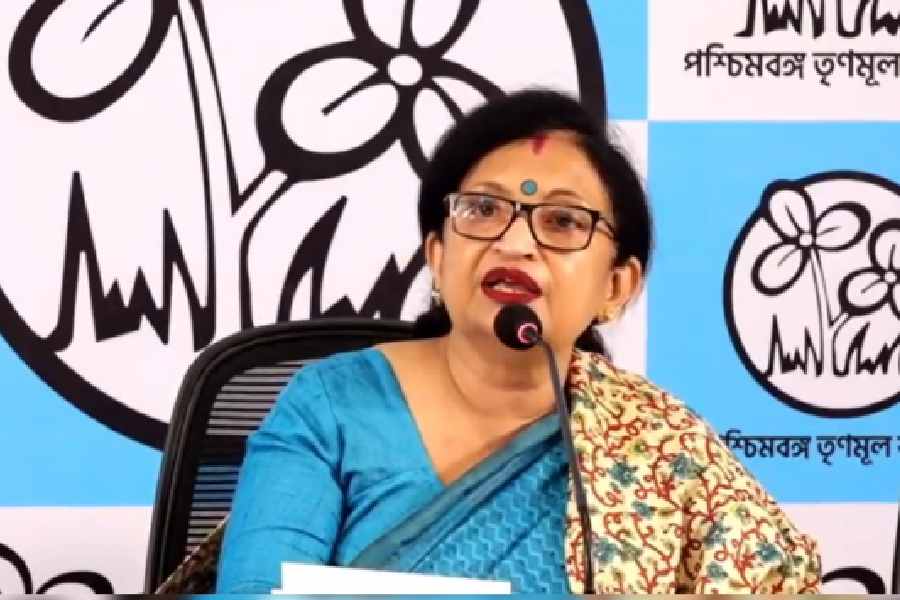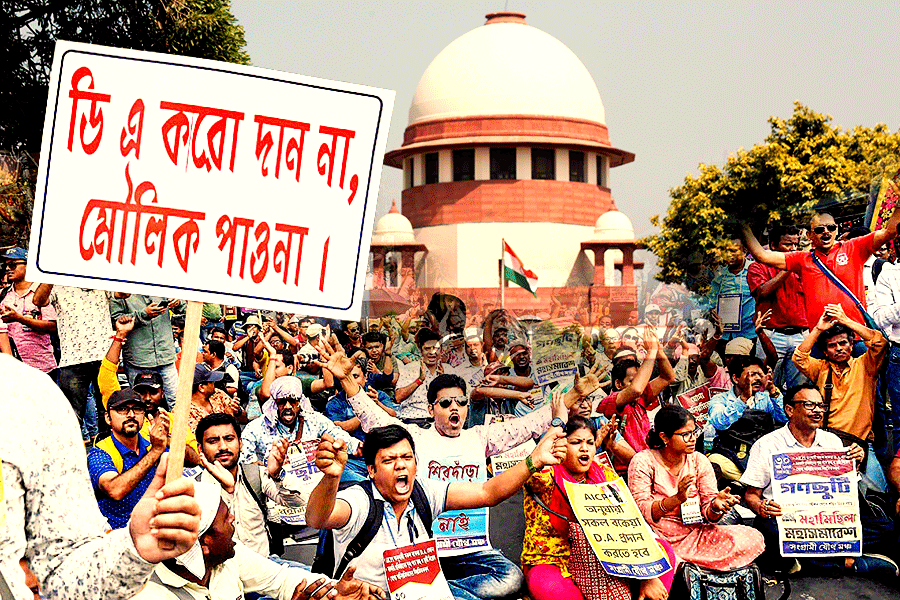Brazil’s Supreme Court on Friday ordered former President Jair Bolsonaro to wear an ankle monitor, stay home during most hours and stay away from foreign embassies, a sign that the court believed he is liable to flee the country before his trial on charges that he attempted a coup after losing the 2022 election.
Brazilian federal police searched Bolsonaro’s residence and home on Friday morning, carrying out orders from the Supreme Court, according to two people familiar with the searches who spoke on the condition of anonymity to describe the operation. Brazilian media showed Bolsonaro arriving to a government facility on Friday morning to have an ankle monitor fitted on him.
Bolsonaro’s lawyer, Paulo Cunha Bueno, confirmed that the court ordered Bolsonaro to use an ankle monitor and barred him from using social media or communicating with his son, Eduardo, who has been in Washington lobbying the Trump administration to intervene in his father’s case.
“Former President Jair Bolsonaro’s defence team was surprised and outraged by the imposition of severe precautionary measures against him, despite having complied with all court orders to date,” his lawyers said in a statement.
The order is a sharp escalation of Brazilian authorities’ sudden feud with President Donald Trump over Bolsonaro’s case.
On Thursday evening, Trump posted online a letter he wrote to Bolsonaro, saying the criminal case against the former President was political persecution. He added that his planned 50 per cent tariffs on Brazilian imports were to pressure Brazilian authorities to drop the charges.
A police statement said that officers in Brasília carried out “two search and seizure warrants, in addition to precautionary measures other than arrest, in compliance with a decision by the Supreme Court”. The statement did not name Bolsonaro.
Bolsonaro is currently on trial at the Supreme Court accused of leading an alleged attempt to stage a coup to overturn the 2022 election in which he was defeated by Left-wing President Luiz Inácio Lula da Silva.
Live aerial footage from local broadcasters showed federal police vehicles outside Bolsonaro’s residence in Brasília.
Congressman Sóstenes Cavalcante, the leader of Bolsonaro’s party in the lower house, told The Associated Press that officers also searched Bolsonaro’s office at the party’s headquarters. He described the operation as “another chapter in the persecution of conservatives and Right-wing figures” in Brazil.
A lawyer for Bolsonaro did not immediately respond to a request for comment.
On Tuesday, Brazil’s prosecutor-general Paulo Gonet said in a report to the Supreme Court that the “evidence is clear: the defendant acted systematically, throughout his mandate and after his defeat at the polls, to incite insurrection and the destabilisation of the democratic rule of law”.
Bolsonaro has described the trial on X as a “witch hunt,” echoing a term used by Trump when he came to his South American ally’s defence last week.
A guilty verdict on the coup plot charge carries a sentence of up to 12 years, which could, along with guilty verdicts on other charges, bring decades behind bars.
Bolsonaro has repeatedly denied the allegations and asserted that he's the target of political persecution.
“What is a coup? It’s the Armed Forces, it’s tanks on the streets, it’s having a political core, having a financial core,” Bolsonaro said. “That’s a coup. Nothing was even considered (...) and even if it had been considered, since nothing started, there’s no crime.”
“Bolsonaro is not a dishonest man,” he said. “Nobody is happy with what Brazil is doing because Bolsonaro was a respected President.”
Trump added that Bolsonaro isn’t a friend, but someone he knows.
On Monday, the office of the under secretary for public diplomacy at the US state department said on X that “attacks” on Bolsonaro “are a disgrace and fall well below the dignity of Brazil’s democratic traditions”. The US embassy in Brazil reposted the message, adding a translation in Portuguese.
Brazil’s foreign ministry responded on Tuesday, saying those claims are “further undue and unacceptable interference in matters under the jurisdiction of the Brazilian judiciary”.
Gonet formally charged Bolsonaro and 33 others in February in connection with an alleged coup days after President Luiz Inácio Lula da Silva took office. Gonet said Bolsonaro's actions “were not limited to a passive stance of resistance to defeat, but were a conscious effort to create an environment conducive to violence and a coup”.
New York Times News Service and AP










